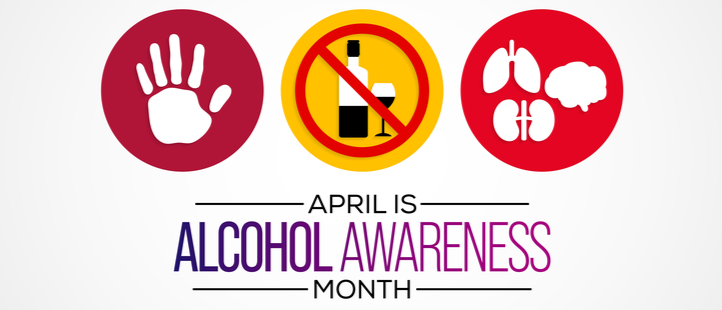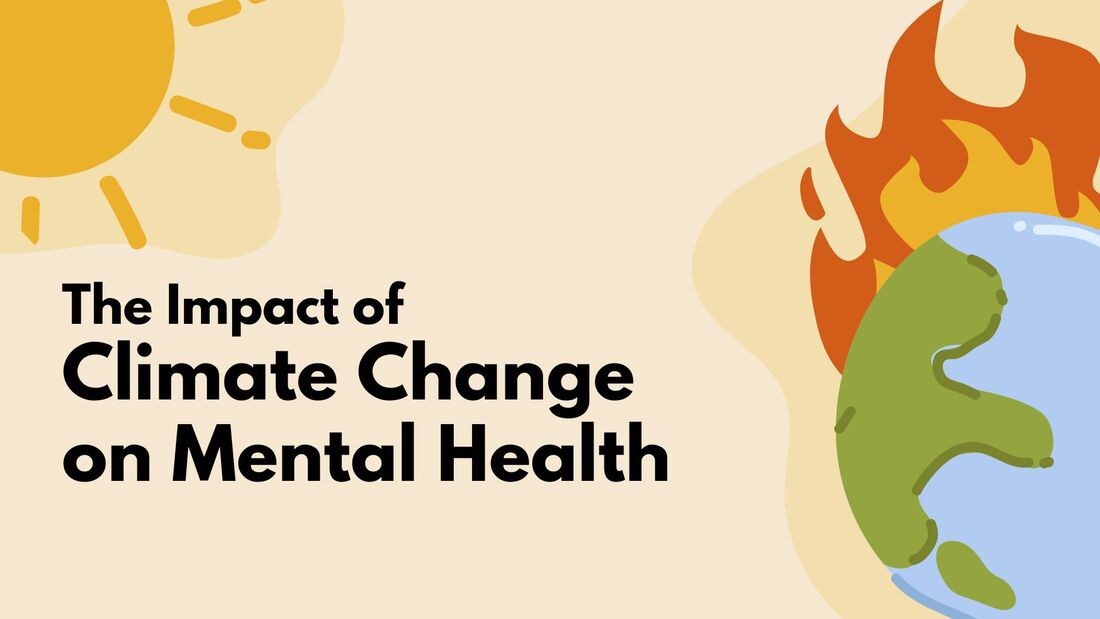|
April is Alcohol Awareness Month, a time to raise awareness of alcohol use and misuse. Some of LIBR’s work delves into how alcohol use affects mental health, and we are passionate about using our findings to learn more about causes and treatments. We reached out to Dr. Robin Aupperle, LIBR Principal Investigator, and Elisabeth Akeman, Licensed Professional Counselor and Lead Therapist and Clinical Research Coordinator in the Aupperle Lab, to share their knowledge about how alcohol affects the brain and mental health, how to know how much alcohol is too much, ways to reduce alcohol consumption, where to seek professional help and how LIBR is contributing to research on alcohol use.
Does alcohol use impact mental health? Absolutely – there is a complex relationship between alcohol use and mental health, as alcohol use can influence our thoughts, behaviors, and emotions. This may be especially problematic for those who tend to experience symptoms of anxiety and depression. When we experience intense negative emotions, it can be tempting to do things, such as using alcohol, to push away, minimize, or avoid those negative thoughts and emotions. Alcohol use may cause a temporary decrease in anxiety and negative emotions or even a temporary increase in positive emotions, which reinforces its use and leads people to use alcohol more frequently and at higher doses. This is an effect referred to as positive reinforcement. Continued use can prevent people from seeking out more adaptive ways of coping with negative emotions or negative life events – thus contributing to worse mental health in the long-term. In addition, chronic alcohol use can lead to changes in the brain that contribute to reductions in the experience of positive emotions and worsening of mental health. In addition, alcohol withdrawal (experienced when someone who has been using alcohol chronically quits using the drug) can lead to symptoms of anxiety, irritability, decreased mood, in addition to physical withdrawal symptoms. Individuals then may start using alcohol again to avoid these symptoms – which is referred to as negative reinforcement. In summary, the use of alcohol is often reinforced in the short-term by temporary reductions in negative emotions, while chronic or excessive use often leads to worse mental health. How does alcohol impact your brain? Alcohol affects the brain in a multitude of ways with both short- and long-term effects. Alcohol acts as a depressant, inhibiting neurotransmission and leading to decreased attention, drowsiness, and mood and memory alterations that occur when using alcohol. Alcohol is also thought to suppress inhibitory neurotransmitter systems, which contributes to reductions in social inhibitions. At higher levels, alcohol can cause acute confusion, sensory impairment, and even coma or death. Heavy and long-term alcohol use can also cause memory, attention, and processing speed issues. These effects may relate to the impact of alcohol on prefrontal “executive” systems as well as medial temporal lobe memory systems. However, these cognitive functions improve again for most people after long periods of abstinence. Alcohol also impacts the motivational systems of the brain in a way that contributes to continued use and impacts mental health. Alcohol use leads to temporary increases in neurotransmitters involved in the experience of reward, including dopamine and opioid neurotransmitters. Chronic and excessive alcohol use is thought to “hijack” the brain’s reward system such that it does not respond as much to other more natural rewards (e.g., social connection). This can lead to less engagement with these natural reinforcers and further use of alcohol to get that experience of reward or positive emotions. How do I know if I’m drinking too much? Alcohol consumption is associated with a variety of short- and long-term health risks. Risks may be related to safety (e.g., motor vehicle crashes, violence, sexual risk behaviors, etc.), as well as physical health consequences (e.g., high blood pressure, types of cancer, etc.). To reduce the risk of alcohol-related harms, the CDC recommends that adults drink in moderation by limiting intake to 2 drinks or less in a day for men or 1 drink or less in a day for women, on days when alcohol is consumed. In addition to mental and physical health risks, it is important to consider how you feel that your alcohol use is serving you and how it does or does not meet your expectations. While some may report short-term positive consequences of alcohol use (e.g., I feel less anxious), sometimes the long-term consequences of use may not be as helpful (e.g., I am late to work the morning after drinking). To help determine how alcohol is serving you, ask yourself the following questions:
What can I do instead of drinking? Alcohol use can lead us to not being present in our lives in the way that we would like to and even lead to withdrawing or avoiding certain things. This can ultimately get in the way of us living in line with our values and achieving our goals. When decreasing alcohol use, it is important to get engaged in our lives again! The best way to do this is to choose to do things that are important to YOU and that you notice have a positive impact on your mood. Re-discover your hobbies, surround yourself with friends and family, and engage in healthy self-care activities. Changing behaviors, especially those which may be more problematic, can be difficult and take a lot of effort. Setbacks are common but can be learned from. Start with small, manageable steps that lead you closer to living your most meaningful life. Don’t forget to celebrate your progress! I need help with my drinking. What resources are available? If you would like to reduce or quit drinking, don’t do it alone. Regardless of your level of intake prior to reducing, it is important to surround yourself with a variety of resources. Informal sources of support, such as friends and family, are as critical as formal sources of support (e.g., evidence-based therapy, medication, mutual support groups, etc.). A variety of resources at both local and national levels exist to support you on your journey. Rethinking Drinking, provided by the National Institute on Alcohol Abuse and Alcoholism (NIAAA), is a great place to start as it provides education, tools, and lists of resources. Reducing or quitting drinking may lead to physical, cognitive, and emotional symptoms, with rare cases leading to more severe symptoms requiring immediate medical attention. Call 911 or present to a local emergency room if you or someone you know is experiencing withdrawal symptoms. How is LIBR contributing to research related to alcohol use? Dr. Robin Aupperle, the NeuroCATT Lab team are collaborating with researchers at the University of California, San Diego (Dr. Charles Taylor) and University of California, Los Angeles (Dr. Kate Wolitzky-Taylor) on research related to the treatment of problematic alcohol use. The study is examining the impact of a novel psychotherapy intervention focused on increasing the experience of positive emotions for individuals who are experiencing problematic alcohol use as well as symptoms of anxiety or depression. Results from a previous pilot feasibility study and case series can be accessed here. The NeuroCATT Lab is recruiting participants for the ongoing randomized clinical trial with the new psychotherapy intervention. Those interested in participating can learn more about this and other studies by visiting our website www.laureateinstitute.org. To find out if you are eligible to participate, you may sign up here https://www.laureateinstitute.org/ongoing-studies. *Photo Credit: Clay Behavioral Health Center
0 Comments
Research from Dr. Nick Obradovich and colleagues evaluating the effects of climate change on the expression of positive and negative emotions is part of news feature article published today in a Nature News Feature focused on the rise of eco-anxiety (a chronic fear of environmental doom) resulting from devastating weather-related events such as hurricanes, droughts, floods and fires. Highlighted in an associated Nature Editorial, Dr. Obradovich has also been involved in working to develop global mental-health indicators that can be linked to weather and climate data, as part of the Lancet Countdown on Health and Climate Change, that will contribute to efforts to better evaluate and effectively reduce the effect of climate change's mental health burden.
Dr. Paul Holtzheimer - April 2, 2024
"Mechanosensitive Potassium Channels in Nerves: Molecular Mechanisms, Disease Relevance, and Potential Targets for Neuromodulation" William K. Warren, Jr. Frontiers in Neuroscience Lecture 12:00 pm - 1:00 pm Program in the LPCH auditorium Dr. Steve Brohawn is an Associate Professor at the University of California, Berkeley in the Department of Molecular and Cell Biology and the Helen Wills Neuroscience Institute. Research in his laboratory is focused on understanding the molecular basis of sensory transduction and electrical signaling in the nervous system. To this end, the lab uses a combination of cryo-electron microscopy and electrophysiology to investigate the structure and function of membrane protein ion channels and transporters. Prior to starting his laboratory in 2016, Dr. Brohawn was a Helen Hay Whitney Postdoctoral Fellow in Dr. Rod MacKinnon’s lab at the Rockefeller University from 2010 to 2015 where he studied ion channels that sense mechanical force. Steve received his PhD in Biology in 2010 from the Massachusetts Institute of Technology where he worked with Dr. Thomas Schwartz on the structure and function of the nuclear pore complex. He received his B.S. from the University of Delaware in 2004 where he worked with Dr. Colin Thorpe on the enzymology of oxidative protein folding. Work in his lab has been recognized with a NIH New Innovator Award, a New York Stem Cell Neuroscience Investigator Award, a Sloan Research Fellowship, a McKnight Neuroscience Scholar Award, and a Klingenstein-Simons Research Fellowship. Learning objectives:
Saint Francis Health System designates this live activity for a maximum of 1 AMA PRA Category 1 Credit(s)™. Physicians should claim only the credit commensurate with the extent of their participation in the activity. For Psychologists: The Oklahoma State Board of Examiners of Psychologists, the American Psychological Association and the Oklahoma Psychological Association recognize AMA PRA Category 1 credit™. Saint Francis Health System is accredited by the OSMA For Social Workers: An application has been sent to the Oklahoma State Board of Licensed Social Workers for 1 hour Category 1 Clinical. For CADCs and LADCs Saint Francis Health System is accredited as a provider of continuing education programs for CADCs and LADCs through the Oklahoma Board of Licensed Alcohol and Drug Counselors. (1 hour) The LPC/LMFT This event as been approved by the State Board of Behavioral Health Licensure (BBHL) for 1 hour of CE. For questions , email: Lauren Haguewood at [email protected] |
Archives
July 2024
Categories
All
|
VISIT LIBR6655 South Yale Ave. Tulsa, OK 74136
918.502.5100 | [email protected] |
|
© 2009-2024. All Rights Reserved. Laureate Institute for Brain Research
Site powered by Laureate Institute for Brain Research



 RSS Feed
RSS Feed